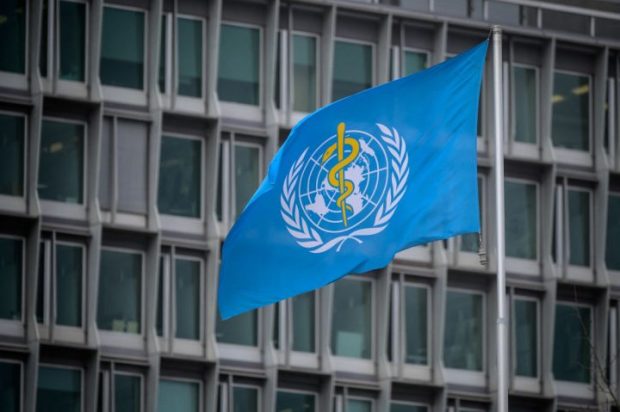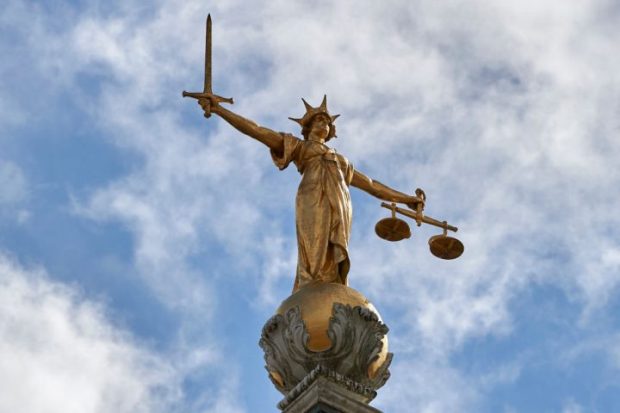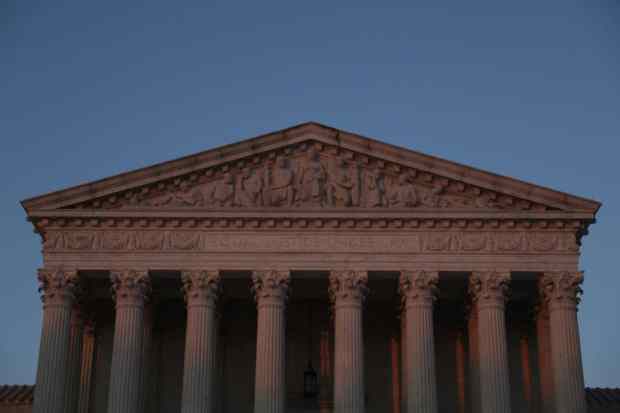Any serious politician knows perfectly well by now that net zero 2050 won’t fly democratically. There was an inevitability about Rishi Sunak graciously allowing us longer to keep buying our petrol cars and using our gas boilers, not to mention Emmanuel Macron’s own subsequent climbdown on the gas boiler issue in France earlier this week. Their voters would not have stood for anything else.
But where does this now leave the serious climate activist? Effectively they have two choices: make the best of a democratic process which has turned against them, or move to take such decisions out of the hands of the voters.
What is being demanded here is that future environmental policy be determined in a technocratic way
There are ominous signs that they are increasingly inclined towards the latter, much more dangerous, course. One such straw in the wind is a high-profile case starting today in the European Court of Human Rights.
The nominal claimants are six Portuguese citizens aged between 11 and 24. They are suing 32 European states, including the UK, seeking what is effectively an order from the Strasbourg judges to keep strictly to the Paris accords and immediately act to keep warming below 1.5 degrees centigrade. Anything short of this, they say, threatens their human rights to life, to freedom from torture or degrading treatment, and to privacy, and unduly disadvantages them as against earlier generations.
The public relations accompanying this claim deserve full marks. Graceful pictures of winsome teenagers combine nicely with evocations of David and Goliath, not to mention idealistic youth pitched against selfish middle age. And, it must be admitted, at least some of the money behind the campaign has been crowdfunded rather than handed out by well-heeled foundations. Nevertheless, this is still a development that should give us considerable pause.
For one thing, the claimants, while utterly sincere, are bit players. In reality, this is a fairly ordinary case of pressure groups engaging in lawfare as politics by other means. The whole thing is apparently co-ordinated by something called the Global Legal Action Network, or GLAN, and it has the overt backing of organisations such as Amnesty, Greenpeace and a number of other activist groups.
Secondly, behind all this lies an important bid by human rights lawyers (many of those instructed, incidentally, being English barristers) to stake a claim over what is for human rights law a pretty untouched field. Admittedly, their arguments are not quite as outlandish as you might think if armed merely with the words of the Human Rights Convention.
True, you might be forgiven for reading the right to life as something aimed at state death squads rather than freak weather fatalities, for interpreting torture or degrading treatment as meaning deliberate brutalisation rather than failing to control heatwaves and the duty not to discriminate in respecting human rights as having nothing to do with promoting intergenerational justice. But however correct in 1951 when we ratified the convention, such a view now puts you very firmly on the wrong side of history. All these rights have been creatively extended almost out of recognition, so as to cover not simply deliberate state atrocities but all sorts of activities and omissions that might shorten, blight or unequalise the life of people generally.
Nevertheless, no-one has seriously suggested so far that the convention gives the court the kind of remit that these human rights lawyers are now pressing for: a kind of roving commission to keep governments on their toes on all matters climate, and, whatever voters may think, to intervene in any case where it sees that lives, comfort and the interests of future generations are being hazarded to a greater extent than it regards as acceptable. As a lawyer for GLAN candidly admitted, if he gets what he is asking for – an order from the court to 32 states to ‘rapidly accelerate their climate mitigation efforts’ – this would be a ‘game changer’.
Politics being in the end about the good of human institutions, one must of course still ask: would this be a good thing? Here again, however, there is room for serious doubt.
Backers of this move have pointed out that the involvement of lawyers in climate change is nothing new. This is true: only last month, for example, a group of children in the US state of Montana successfully sued its government for failing to mitigate the effects of fossil fuel use.
But there is an important difference. In Montana the suit was before state judges, and was based on a democratically approved constitution, which explicitly enacted a right to a ‘clean and healthful environment’. In the present case, none of those applies. What is being demanded here is, in effect, that future environmental policy be determined in a technocratic way, by judges owing allegiance to no society or political unit, applying an instrument that is essentially beyond democratic change, and which in addition has never said anything explicit about the environment at all.
What the court will decide is anyone’s guess, though it clearly takes the claim seriously, having assigned it to its highest and most solemn forum, the Grand Chamber. For anyone who believes in democracy, however, such a massive takeover of power needs to be seen as a very big deal indeed.
Voters must be allowed to make up their own minds, which means occasionally getting things wrong. The more an establishment tells them that matters of vital social policy, and of enormous consequence to individuals and their prosperity, are simply too important to be entrusted to them, the more the danger that ordinary people will think democracy itself is not worth the candle.
Whatever your views on climate change, even if you are a firm believer in the enormous reduction in our standard of living that punctilious adherence to net zero would involve, here you must be especially careful what you wish for.



















